
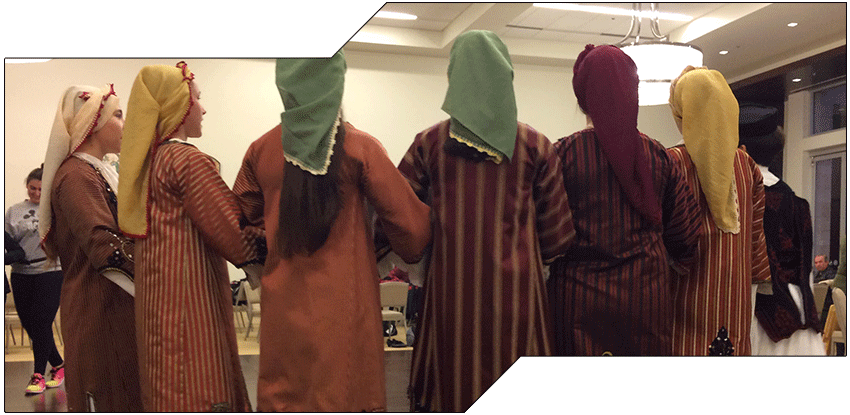
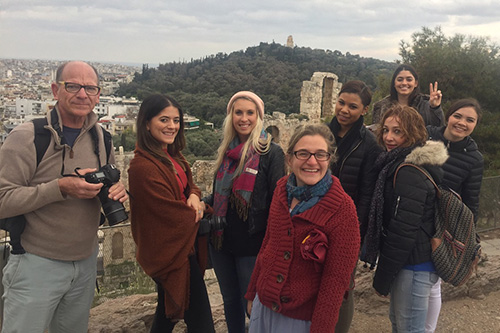 Reporting on Greece was a revelation. Most of us imagined sparkling islands, sun-kissed beaches, and ancient statues of larger-than-life gods. But the real story was the impact of the financial crisis, which had devastated the country for almost a decade. In 2008 when shock waves from the US banking crisis spread worldwide, Greece revealed that it had concealed its true indebtedness for years. With bankruptcy looming, its economic meltdown threatened global order. The small nation was bailed out, but subsequent demands for austerity, budget cuts, tax increases, lay-offs, and regulations have wreaked havoc on citizens. According to Forbes, Greece’s GDP has dropped 30 percent since the crisis began, and employment is 25 percent, double for youth.
Reporting on Greece was a revelation. Most of us imagined sparkling islands, sun-kissed beaches, and ancient statues of larger-than-life gods. But the real story was the impact of the financial crisis, which had devastated the country for almost a decade. In 2008 when shock waves from the US banking crisis spread worldwide, Greece revealed that it had concealed its true indebtedness for years. With bankruptcy looming, its economic meltdown threatened global order. The small nation was bailed out, but subsequent demands for austerity, budget cuts, tax increases, lay-offs, and regulations have wreaked havoc on citizens. According to Forbes, Greece’s GDP has dropped 30 percent since the crisis began, and employment is 25 percent, double for youth.
As a result, many Greeks rely on the cash-only, barter and black market economies, further reducing the national budget. At the same time, thousands of Muslim refugees have arrived in the country further straining Greece’s infrastructure. According to most social service agencies, Greece is currently home to some 62,000 migrants and refugees—a staggering number to feed and shelter given its own financial difficulties.
As the class planned for the trip, which included reporting on our local Greek, Orthodox and Muslim communities, students gained a greater awareness of the intersection of Greece’s economic, political and spiritual crisis. The economic crisis along with rising number of Muslims had energized Golden Dawn, a Neo-Nazi party that found support among youth, working people and conservative Christians. Syriza, the leftist party that headed the government, was pushing a secularist agenda that appealed to many millennials and urbanites. The Greek Orthodox Church and other religious groups offered social services for the country’s indigenous and immigrant needs. Some Greeks, hard hit by the financial downturn, suffered a spiritual crisis that spiraled into drug addiction and suicide. And thousands of refugees were housed in makeshift camps, many living in sub-standard conditions. Muslims who decided to stay in Greece faced prejudice and economic hardships. That’s why, after years of worshiping in underground mosques, many looked forward to an official, government-supported mosque under construction in Athens.
During our nine day-visit, the class spent time in Athens and Thessaloniki, Greece’s second largest city. Located in northern Greece, Thessaloniki has been a crossroads for Christians, Muslims and Jews—as well as poets, artists and philosophers. In both cities, we enjoyed wonderful meals, met fascinating people, saw intriguing sights and covered a range of exciting stories.
These are photos of students at work, some of the people we interviewed and sights we saw:
Scenes from #Greece2017
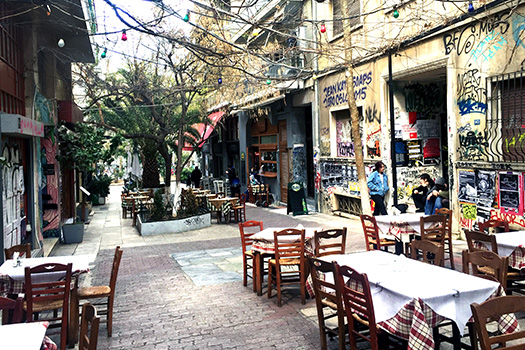 |
Arriving in Athens, we found many outdoor cafes similar to those in other European cities. What made Athens different was the graffiti that marked so much of the city. |
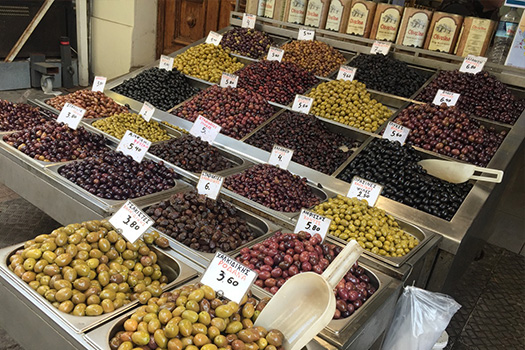 |
Greece's outdoor markets delighted those of us who love olives. |
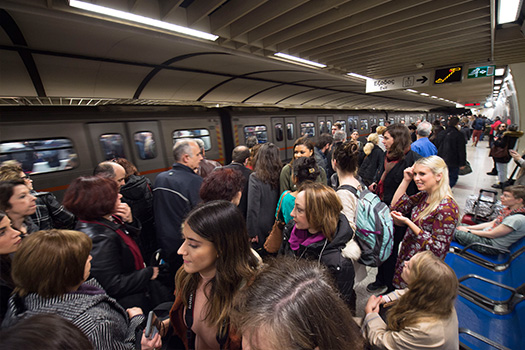 |
Soon after arriving in Athens, we learned how to navigate the city's subway system. |
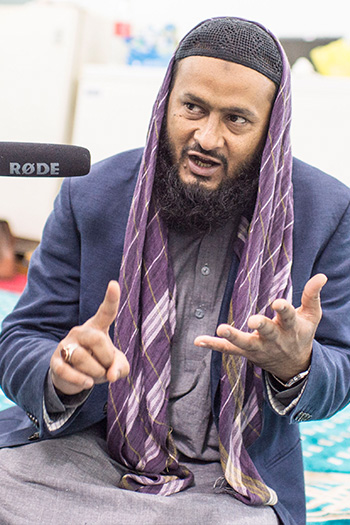 |
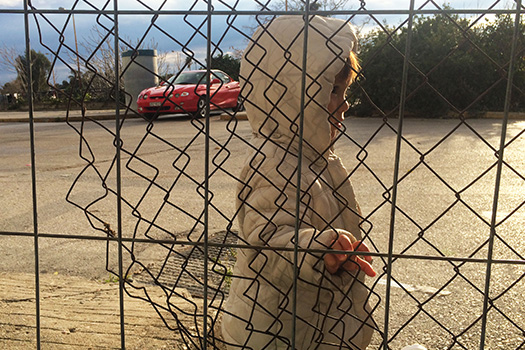
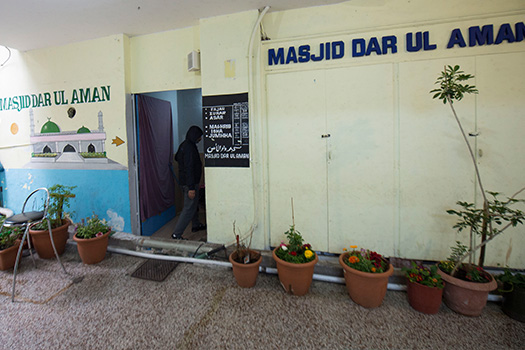 |
Thousands of Muslims live in Greece. Some, like the young girl, behind the wire fence, are in refugee camps. Others are immigrants who have decided to stay. Many of these attend underground mosques. |
|
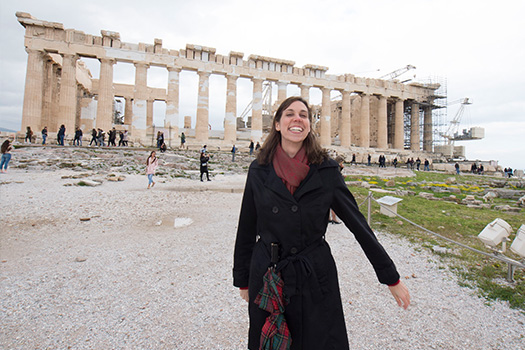 |
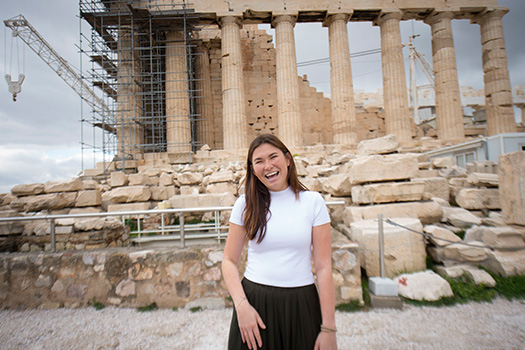 |
One of our favorite trips was to the Acropolis. Jenny Lower (left) and Juliet Muir (right) pose in front of the ruins. |
|
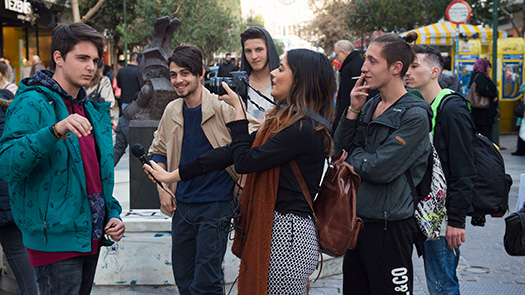 |
Students spent most of the time working on their stories. Barbara Estrada is interviewing a group of Athenian youth for one of her pieces. |
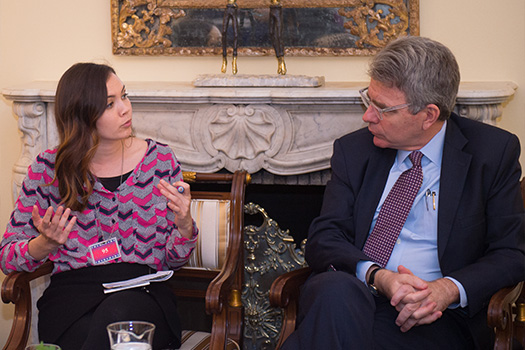 |
Lauren Day chats with Gregory Pyatt, the U.S. Ambassador to Greece. |
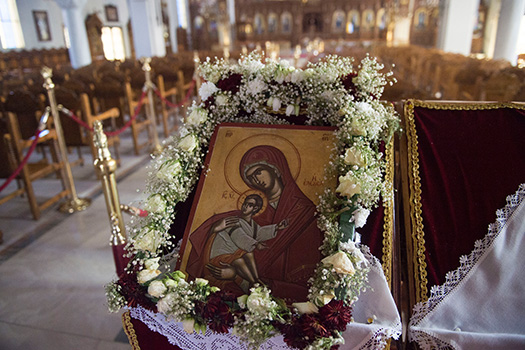 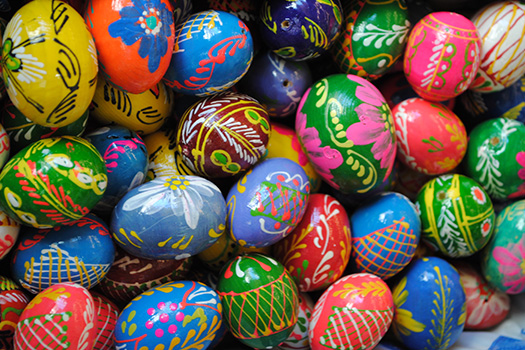 |
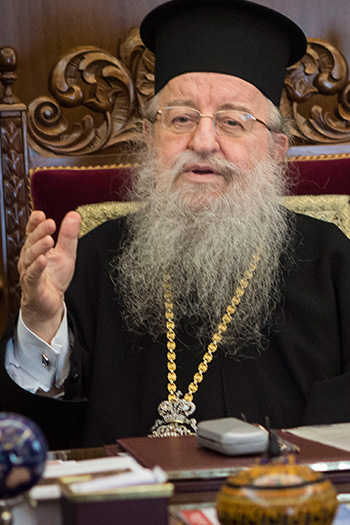 |
The class met with Metropolitan Anthimos, the Greek Orthodox bishop of Thessaloniki, during our visit there. Since we traveled right before Easter, we saw many brightly painted Easter eggs and carefully decorated icons. |
|
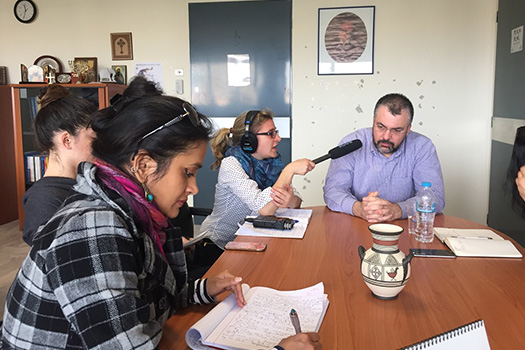 |
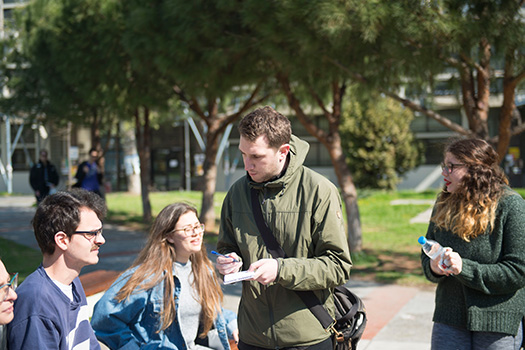 |
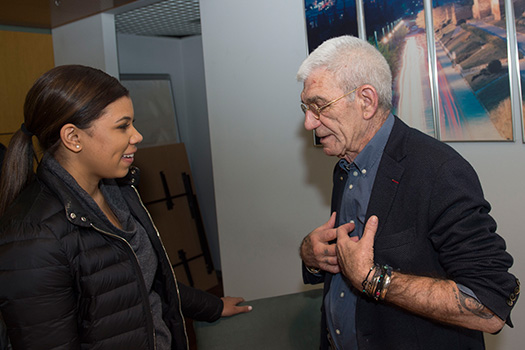 |
|
Students at work. Priyadarshini Sen, Zara Abrams and Renee Gross interview George X Kalantzis, the secretary general for religious affairs in the Ministry of Education, Research and Religious Affairs. Zach Siegel talks to university students, and Alexandra Meeks confers with Yiannis Boutranis, the controversial mayor of Thessaloniki |
|
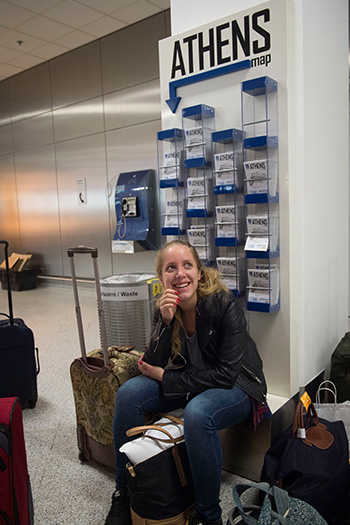 |
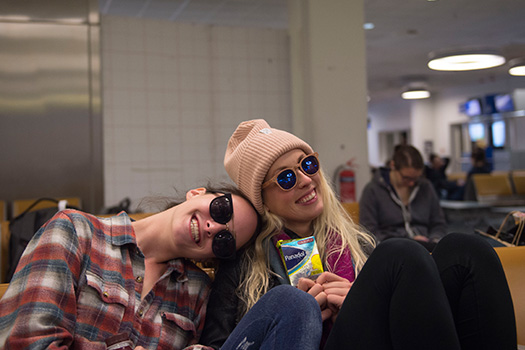 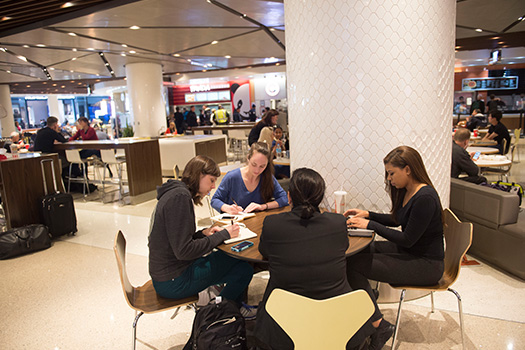 |
Making the most of time in the airport: Jolene Latimer, Catherine Clark, Marie Targonski-O'Brien, Jenny Lower, Alexandra Meek and Nomi Morris. |
|
Published Work

A Year After the EU Deal to Slow Refugee Influx, An Uncertain Future
/ GroundTruth
A Year After the EU Deal to Slow Refugee Influx, An Uncertain Future
/ Ground Truth
Afghan refugees lose out in EU relocation process
/ Ground Truth Project
The Far Right: How Golden Dawn Spun Itself into a Criminal Organization
/ Ground Truth Project
Watchdog group fights fascism in Greece by filling in media gaps
/ Ground Truth Project
Greek Orthodox is Losing its Grip on the Next Generation
/ Ground Truth Project
Lessons About Despair, Dope, and Death From Athens to Pence’s Indiana
/ Daily Beast
A Greek Rock Star’s Message to Humanity
/ Huffington Post
Willy Loman in Tehran: Asghar Farhadi and the Death of the American Dream
/ Los Angeles Review of Books
Family Lines
/ Killing the Buddha
Sufism, the mystical practice of Islam, takes root in the City of Angels
/ Deseret News
IsraAID—and Jewish values—on the ground in global refugee crisis
/ Jewish Journal
Muslims in Athens Await Official Place of Worship After Centuries Underground
/ Ground Truth
An L.A.-Based Syrian-American Filmmaker Has Put Away His Camera to Focus on the Refugee Crisis
/ LA Weekly
This Woman Planned to Spend 45 Days in Greece, But She Stayed for Nearly a Year to Help Refugees
/ Annenberg Media News
A Millennial Turns from Physical Trainer to Orthodox Priest
/ USCAnnenbergMedia
How Muslim “Hijabistas” are Resisting in the Trump Era — With Style
/ PopSugar
Orthodox Church debate over women deacons moves one step closer to reality
/ Colorado Springs Gazette
The rescued Jewish tombstones of Thessaloniki
/ PRI
Youth camp seeks to connect children with Greek Orthodox culture
/ KPCC
How Southern California's Greek Community Stays in Touch With Its Roots
/ LAWeekly
Muslim students join lawsuits against Trump
/ Colorado Springs Gazette
Trump travel ban dividing LA Jewish community
/ KPCC
Trump’s Travel Ban Blocked, but Fear and Uncertainty Grow Among Muslim and Immigrant Communities
/ USCAnnenbergMedia
LGBTQ in Greece
/ Facebook USC Annenberg Media
Oscar Award-Winning ‘The White Helmets’ Shows Muslim Humanitarians At Work
/ HuffingtonPost
Re-creating the sounds of an ancient Greek church in LA
/ RNS
This Year The Oscars Are Recognizing Syria
/ HuffingtonPost
Muslim, Jewish communities show mutual support through storytelling
/ KPCC
In Crisis-Plagued Greece, Heroes Treat Scapegoats
/ The Fix
Refugees of different faiths seek LA Armenian church help
/ KPCC
Songs from a Changing Sea: A Spiritual Journey Beneath the Waves
/ HuffingtonPost
Spiritual seekers reconstruct ancient Greek polytheism
/ RNS
Refugees and Rock Stars Protest Through Music
/ HuffingtonPost
Law Students Help Refugees Despite Resistance From Trump
/ USC Annenberg Media
Muslim Students Community Service Sends a National Message
/ USC Annenberg Media
The Cuban Diaspora In Greece
/ USCAnnenbergMedia
Noche Flamenca’s Antigona Rebirths Sophocles’ Play into a Flamenco Extravaganza
/ USC Annenberg Media
Greeks in Southern California Connect Through Dance
/ USC Annenberg Media
PREVIOUS WORK: / 2010 / 2011 / 2012 / 2013 / 2014
/ Ground Truth Project
/ Ground Truth Project
/ Daily Beast
/ Huffington Post
/ Los Angeles Review of Books
/ Killing the Buddha
/ Deseret News
/ Jewish Journal
/ Ground Truth
/ LA Weekly
/ Annenberg Media News
/ USCAnnenbergMedia
/ PopSugar
/ Colorado Springs Gazette
/ PRI
/ KPCC
/ LAWeekly
/ Colorado Springs Gazette
/ KPCC
/ USCAnnenbergMedia
/ Facebook USC Annenberg Media
/ HuffingtonPost
/ RNS
/ HuffingtonPost
/ KPCC
/ The Fix
/ KPCC
/ HuffingtonPost
/ RNS
/ HuffingtonPost
/ USC Annenberg Media
/ USC Annenberg Media
/ USCAnnenbergMedia
/ USC Annenberg Media
/ USC Annenberg Media


